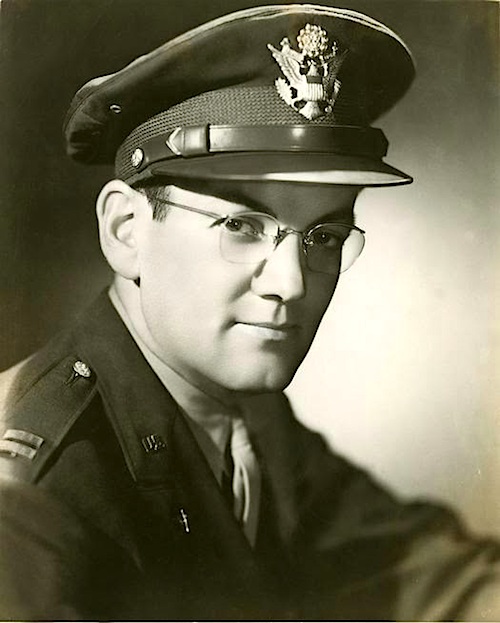By Joe Bendel. Glenn Miller had more number 1’s than either Elvis Presley or the Beatles. At the peak of his success, he made considerably more in an average week than most Americans could hope to earn in a year. Yet, he voluntarily signed up to serve his country during a time of war. Although he was never assigned to combat, Miller ultimately died in the service of his country, but the details remain murky. The circumstances surrounding his final fateful flight get a TV looking-over in The Disappearance of Glenn Miller, the latest installment of History Detectives Special Investigations, airing Tuesday on most PBS outlets.
Even (or particularly) amongst swing die-hards, Miller is a divisive figure, with fervent champions and detractors. However, there is no denying his popular success or his patriotism. The sacrifices he made for the latter are especially impressive given the former. Capitalizing on his stature, Miller was tasked with leading an Army Air Force Band that played morale-boosting concerts for the troops.
To prepare for the first concert in newly liberated Paris, Miller hitched a ride on a single-engine Norseman prop plane across the English Channel, but it never arrived in France. Essentially, three theories emerge: accidental causes (small plane plus bad weather is never a good combination), friendly fire, and the straw man of assorted conspiracy theories.

Evidently, there have been a lot of weird hypotheses hatched regarding Miller’s disappearance that all three host-investigators are quick to dismiss. However, they note in passing Miller’s connection to another celebrity officer, David Niven. Re-enlisting after the outbreak of war, Niven was apparently a real deal commando before his transfer to the propaganda unit, where it seems he may or may not have had dealings with the intelligence service. Frankly, his wartime experiences would make a terrific movie, but who could possibly play Niven? Of course, Jimmy Stewart played the bandleader in The Glenn Miller Story, seen briefly during this episode.
The three on-camera “History Detectives” (a lit professor, an auctioneer, and a sociologist) do a nice job explaining the technical details of the Norseman and the potential friendly fire misadventure, but they never really put Miller in his full musical context. Louis Armstrong loved his recordings, but many swing connoisseurs found his bands way too “sweet.” Indeed, it is doubtful Milller would have been the secret weapon for winning over Germany’s underground Swing Kids, as they suggest. Goodman or Ellington would have been far more effective. Still, a psych-ops unit probably had to make do with whatever bandleader they had handy.
Unfortunately from a dramatic standpoint, the verdict is decidedly anti-climatic, pretty much confirming our most prosaic suspicions. The hosts’ chipper, “happy news” style transitional conversations (“that’s fascinating, keep us posted”) also quickly get tiresome. Nevertheless, it is just nice to see some primetime television devoted to the iconic bandleader. Regardless of your feelings for his music, he was a great American. Why not listen to some of his Army Air Force Band recordings this Independence Day weekend and if you are still curious about his mysterious fate – and otherwise check out The Disappearance of Glenn Miller this coming Tuesday (7/8) on PBS’s History Detectives.
Posted on July 5th, 2014 at 2:32pm.